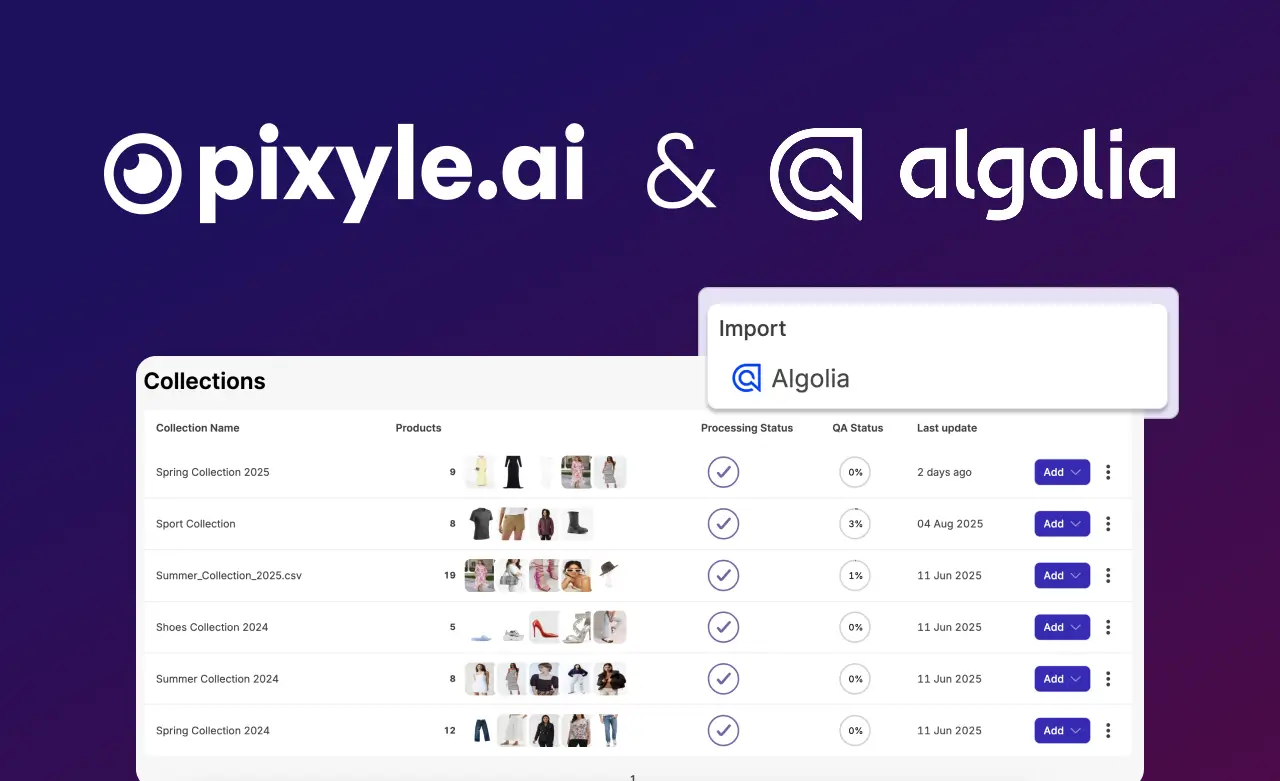How Incomplete Product Data Is Costing You Sales (and How Product Data Enrichment Fixes It)
.webp)
In the world of e-commerce, your products are only as good as how well they’re described. In fact, 83% of shoppers worldwide say they would abandon a site because of insufficient product information.
Poor ecommerce data quality, from vague titles to missing attributes, doesn’t just frustrate your shoppers; it directly impacts your sales. Here's how, and more importantly, what you can do to fix it.
What Incomplete Product Data Costs You: Sales, Customers, and Credibility
When your product listings lack detail or consistency, you’re not just making things harder for customers. You're also hurting your visibility, damaging your brand credibility, and leaving money on the table.
Let’s break that down:
1. Poor Searchability
Shoppers can’t buy what they can’t find. If your products aren’t tagged with the right attributes, think neckline, sleeve length, style, or fit, they may not show up in on-site search or filtering. Even worse, search engines like Google may struggle to index them properly, hurting your overall product discoverability.
That’s where a well-structured fashion product taxonomy becomes essential. Without it, your products are floating in the void, invisible to search engines and shoppers alike.
In fact, 69% of consumers go straight to the search bar when they visit an online retailer, and 80% leave because the search experience doesn't meet their expectations. If your product data isn’t searchable, your sales vanish before they start.
2. Lower Conversion Rates
Unclear or missing product descriptions lead to uncertainty. And uncertainty is the enemy of conversion. When key details like color, pattern, neckline, and sleeve length are absent, customers hesitate or abandon the product entirely.
A solid fashion product taxonomy paired with effective SKU enrichment ensures every product page is packed with relevant, structured data that builds buyer confidence.
Research shows that 87% of consumers say that accurate, rich, and complete product content is very important when deciding what to buy. After all, who wants to guess what a dress feels like or how it falls? If the material or length is missing, most shoppers won’t risk it, they’ll simply move on.
3. High Return Rates
When a product doesn’t meet customer expectations, it often ends up being returned. In fact, 30% of online purchases are returned, and poor product information is one of the main reasons why. In many cases, this disconnect is caused by vague or incomplete product descriptions, and missing details about fit, fabric, or style can lead to confusion and dissatisfaction. Clear, consistent, and enriched product data helps shoppers make confident purchase decisions, reducing the risk of disappointment and the likelihood of returns.
That’s where AI for ecommerce product data plays a key role. With enriched attributes and accurate details, shoppers know exactly what they're getting, reducing the likelihood of disappointment and returns.
4. Missed Personalization and Recommendation Opportunities
Incomplete product data weakens your ability to recommend the right products. If your system doesn’t know the sleeve length of a blouse, it can’t suggest similar styles, which means missed upsell opportunities.
AI for ecommerce product data excels here, enabling AI-powered personalization that feels custom-made. But this only works if your data foundation is strong, with comprehensive SKU enrichment and attribute consistency across the board. Without them, your recommendation engine optimization falls short, and shoppers miss out on relevant suggestions.
Why Retailers Struggle With Product Data Quality
Retailers, brands, and marketplaces face real challenges when it comes to maintaining high-quality product data:
- Manual tagging is time-consuming and inconsistent, costing teams hundreds of hours each year.
- Suppliers provide varied and incomplete product information, which forces internal teams to spend extra time cleaning and standardizing data.
- Scaling product catalogs without sacrificing quality becomes nearly impossible, often leading to missed revenue opportunities and higher operational costs.
And without a clear fashion product taxonomy, this chaos only compounds.
That’s where automation and specifically AI for ecommerce product data—can make all the difference.
How to Fix It: Automate and Enrich Your Product Data with AI
Improving your product data doesn't have to mean more manual work. With product data automation, fashion brands, retailers, and marketplaces are using AI to simplify and scale the entire process.
Platforms like Pixyle AI use computer vision and deep learning to analyze product images and generate detailed, accurate product attributes fast. Think of it as a smart layer that transforms your raw product info into rich, searchable, conversion-optimized data. It’s like hiring a team of stylists and SEO writers to optimize every product in your catalog, instantly.
Here’s what that looks like:
Auto-tagging
Improve product catalog enrichment with consistent and detailed product attributes, using language your shoppers understand. AI product tagging applies key details, such as neckline, pattern, silhouette, and fit, helping products appear in search results and filters. It also helps structure your fashion product taxonomy, making your catalog easier to manage and your products easier to find.
Smart Descriptions
Create high-quality, SEO-friendly product titles and descriptions at scale. Give shoppers the information they need to convert, without having to write every word by hand. These dynamic descriptions are powered by AI for ecommerce product data, ensuring both accuracy and SEO value.
Easy Integration
Use Pixyle’s intuitive platform or connect through API to plug into your current tech stack. No disruption, just better data. From automated tagging to real-time SKU enrichment, it’s a one-stop shop for cleaner, smarter catalogs.
The results? Higher conversion rates, better product discovery, improved SEO, and less time spent on manual enrichment.
Final Thoughts
Incomplete product data is a silent revenue killer, but it doesn’t have to be. Better data goes beyond driving clicks; it drives conversions, retention, and growth. With the right tools, you can turn underperforming listings into top-converting assets, drive more traffic, and create a better shopping experience.
Whether you’re a fashion retailer, marketplace, or brand, now is the time to prioritize product data quality. Because in e-commerce, details drive decisions, and decisions drive sales.
Ready to see how product data enrichment and AI for ecommerce product data can grow your sales?
Learn how Pixyle AI can help.
Want to see how fashion product taxonomy and SKU enrichment can transform your catalog?
Boost your sales with AI product tagging
Optimize your eCommerce catalog to improve discovery and conversions.






